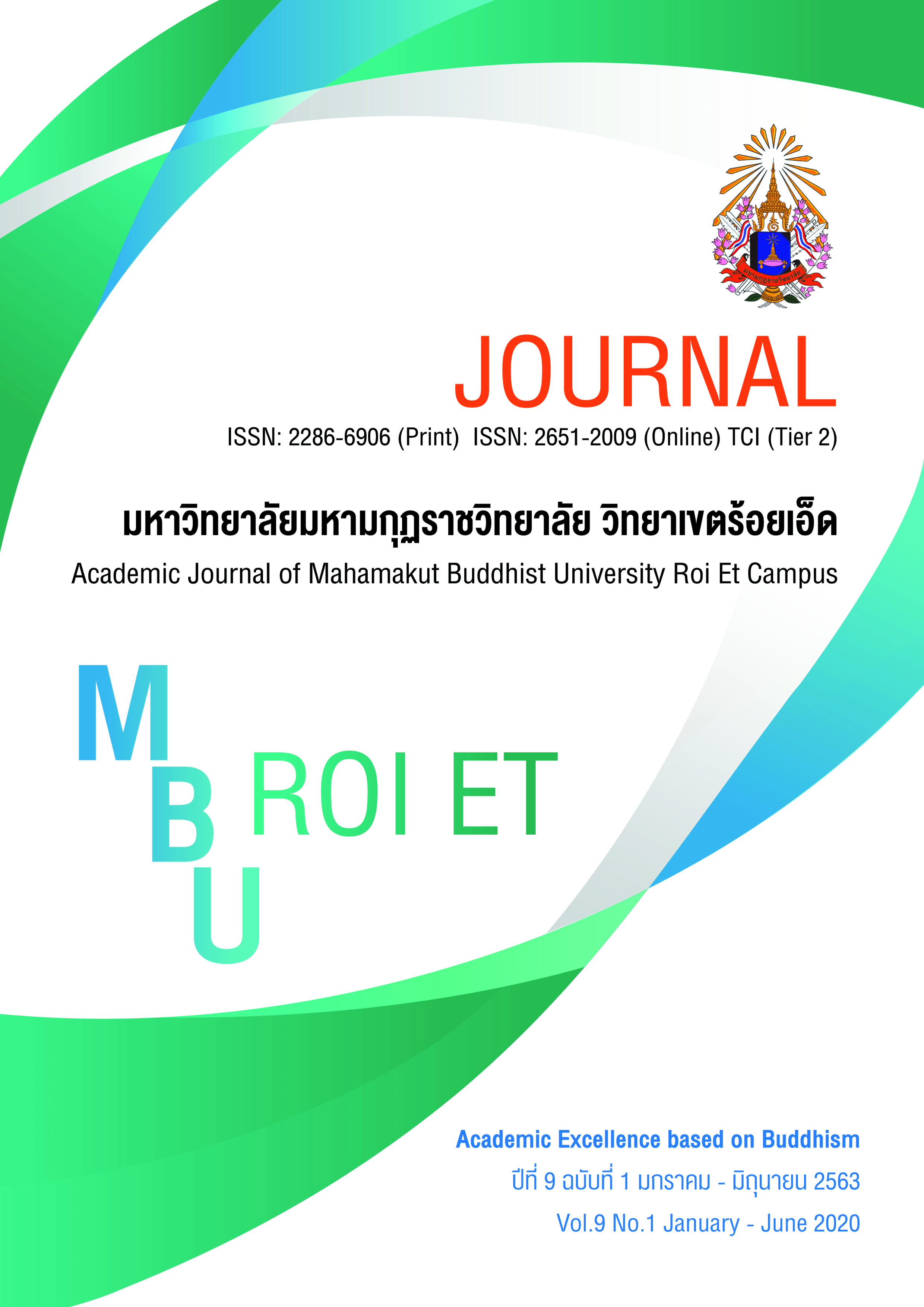The Role of Buddhist Monks and Human Capital Development to Thailand 4.0
Main Article Content
Abstract
The Objectives of the research article were to 1) study the role of Buddhist monks and human capital development to Thailand 4.0 and 2) compare the role of Buddhist monks and human capital development to Thailand 4.0Is a pragmatic research Sample group is Monks live in the administrative district of Wang Sam Mo district. Udon Thani Province consisting of 6 sub-districts, 72 villages, totaling 248 subjects. The instrument used for data collection is a scale questionnaire of 5 levels. The questionnaire had the value of confidence in the whole version equal to .96 and the issues with the role of discrimination between .34 and .79. And one-way analysis of variance.
The results showed that 1)The role of Buddhist monks and the development of human capital into Thailand 4.0 in the administrative district of Wang Sam Mo District Udon Thani Province. The overall picture was at a high level. When considering each aspect Found that it was at a high level in all aspects Sort the average from descending to the moral aspect. The rule of law Participation The main aspect of transparency Responsibility Worthiness 2)The comparing the roles of Buddhist monks and human capital development At different ages About the role of monks and human capital development to Thailand 4.0 in the administrative district of Wang Sam Mo District Udon Thani Province Overall and each aspect was not different.
Article Details
References
เกษม จันทร์แก้ว. (2540). วิทยาศาสตร์ สิ่งแวดล้อม. กรุงเทพมหานคร : อักษรสยาม.
ธันยวัฒน์ รัตนสัค. (2555). นโยบายสาธารณะ. เชียงใหม่ : คะนึงนิจการพิมพ์.
บุญชม ศรีสะอาด. (2535). การวิจัยเบื้องต้น. กรุงเทพมหานคร : สุวีริยาสาส์น.
พระครูปลัดสุริยา จนฺทวณฺโณ(ดอกรัง). (2559). การบริหารงานกิจการคณะสงฆ์ธรรมยุตจังหวัดร้อยเอ็ด. วารสารมหาวิทยาลัยมหามกุฏราชวิทยาลัย วิทยาเขตร้อยเอ็ด. 5(2). 136-146.
พระมหาชินวัฒน์ ธมฺมเสฏฺโฐ. (2557). การบริหารงานตามหลักธรรมาภิบาลของเทศบาลเมืองสามพรานอำเภอสามพราน จังหวัดนครปฐม. วิทยานิพนธ์ปริญญาพุทธศาสตรมหาบัณฑิต สาขาวิชารัฐประศาสนศาสตร์. บัณฑิตวิทยาลัย : มหาวิทยาลัยมหาจุฬาลงกรณราชวิทยาลัย.
พระสมคิด นิติสาโร (ธรรมคุณ). (2559). ความคิดเห็นของพระสงฆ์ที่มีต่อการบริหารงานของพระสังฆาธิการในเขตอำเภอไพรบึง จังหวัดศรีสะเกษ. วารสารมหาวิทยาลัยมหามกุฏราชวิทยาลัย วิทยาเขตร้อยเอ็ด. 5(1). 307-321.


